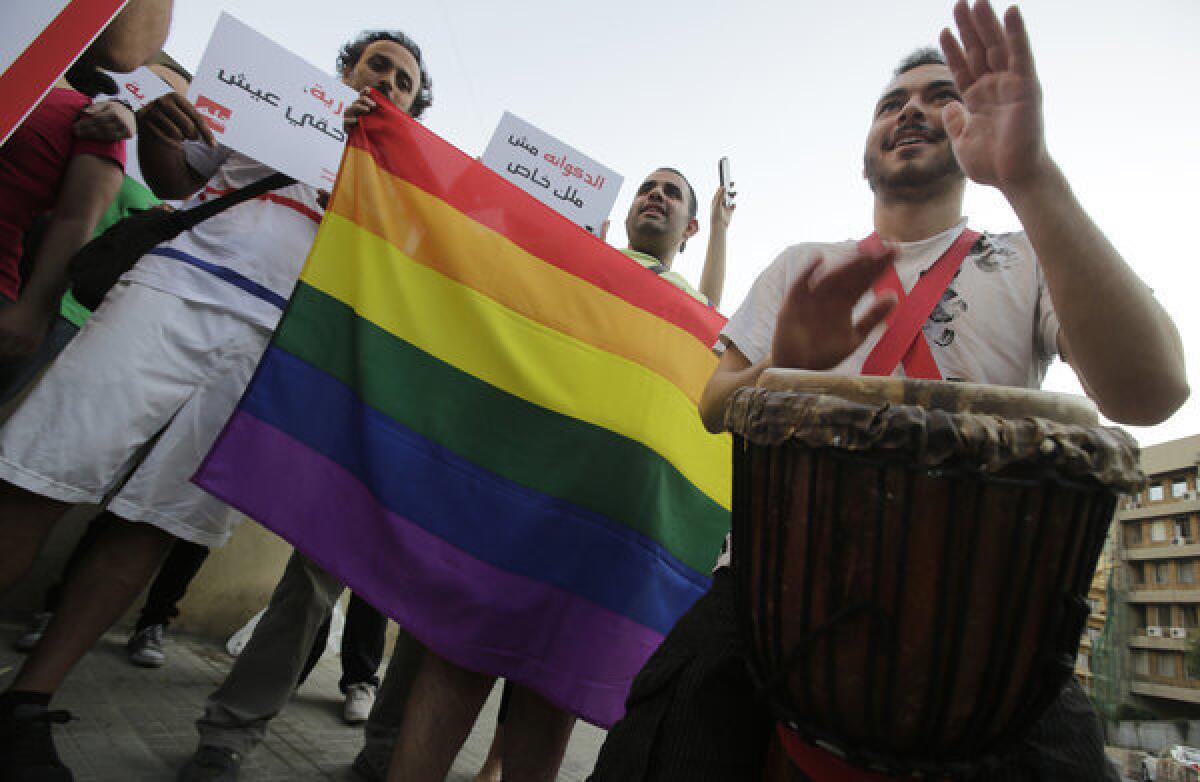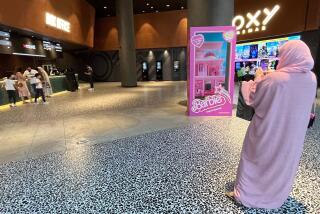Lebanese medical group says being gay is not a disease

BEIRUT -- Taking a definitive stance on a topic that remains extremely sensitive in the Arab world, the Lebanese Psychiatric Society declared this week that homosexuality is not a mental illness and does not merit “reparative therapy.”
“Homosexuality in itself does not cause any defect in judgment, stability, reliability or social and professional abilities,” the society said in a statement. “The assumption that homosexuality is a result of disturbances in the family dynamic or unbalanced psychological development is based on wrong information.”
The society called on health professionals in Lebanon to “rely solely on science whenever they express opinion or provide treatment.”
The statement issued Thursday is in line with mental health practice in most Western nations. The American Psychiatric Assn. struck homosexuality from its list of mental diseases in 1973. However, the issue remains a delicate one in much of the world, including the Middle East.
The Lebanese Psychiatric Society said its statement was in response to recent media reports “about arrests and abuse of homosexuals in Lebanon” and “some positions taken by professionals regarding homosexuals and ways to treat them psychologically.”
The declaration drew warm support from groups working with Lebanon’s lesbian, gay, bisexual and transgender communities.
“Today, Lebanon witnessed an important milestone for our healthcare system and [drive] for equality among all citizens,” the Lebanese Medical Assn. for Sexual Health said in a blog post.
Freewheeling Lebanon has a reputation of being among the most liberal countries in the Middle East, and the gay community here is increasingly visible -- especially in the capital, Beirut, where there are gay-friendly cafes and nightspots.
Still, homosexuality is officially illegal — Article 534 of the Lebanese penal code outlaws “unnatural sexual acts” — and there are occasional reports of police crackdowns.
Last July, more than 30 men were detained in a police raid at a gay cinema in a poor area of Beirut and subjected to homosexuality “tests,” according to local media reports. Four more people were reportedly arrested in a police raid at a gay-friendly nightclub in March.
Last month, a Human Rights Watch report accused Lebanese police of torturing and raping gay and other vulnerable detainees, including prostitutes and drug users.
The New York-based group urged countries that provide aid to the Lebanese security forces, including the United States, France and Britain, to ensure that their assistance furthers the development of internal oversight and accountability.
In a response to the report, Lebanon’s Internal Security forces issued a statement saying the alleged abuses do not reflect overall police conduct in the country.
ALSO:
Edward Snowden seeking asylum in Russia, report says
Canada rail crash stirs debate over Keystone XL pipeline delay
Asiana crash probe: South Korea not happy with NTSB disclosures
Sandels is a special correspondent.
More to Read
Sign up for Essential California
The most important California stories and recommendations in your inbox every morning.
You may occasionally receive promotional content from the Los Angeles Times.










